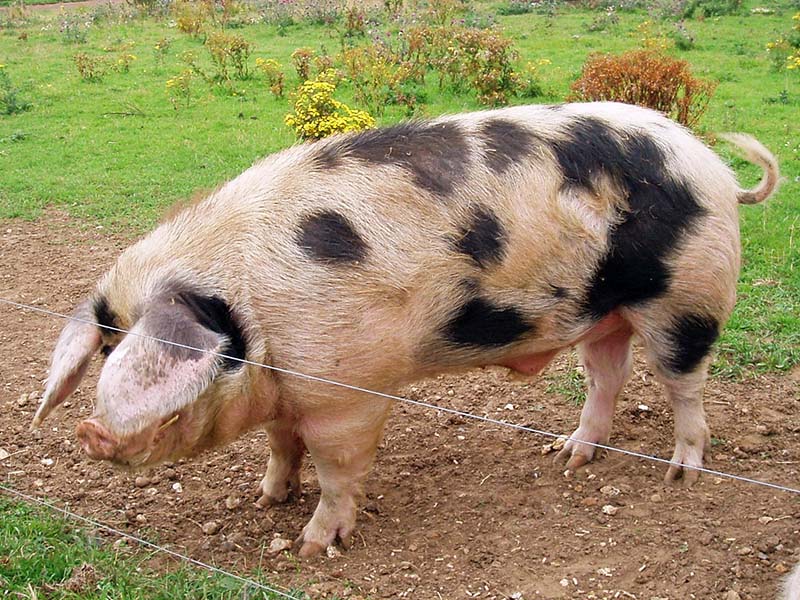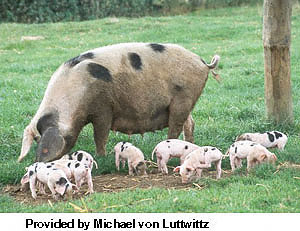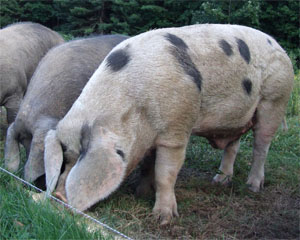Gloucestershire Old Spots Swine
Also Known By: Gloucester, Gloucester Old Spot, Goucestershire Old Spot
The Gloucestershire Old Spots is a black and white breed that is predominantly white in color. In recent years, selection has been towards less black and now only a spot or two are usually found. The breed also has a heavy drooped ear.
Gloucestershire Old Spots originated in the Berkeley Valley region of England UK. The origin of the breed is unknown but is probably from the native stock of the area along with introductions of various breeds. In 1855, Youatt and Martin mentioned there was a native stock in Gloucestershire that was of an unattractive dirty white color.
 The Old Spots are among the large size pigs in England. At one time, they were called the Orchard Pig because they were partially raised on windfall apples and whey - waste agricultural products of the area.
The Old Spots are among the large size pigs in England. At one time, they were called the Orchard Pig because they were partially raised on windfall apples and whey - waste agricultural products of the area.
Gloucestershire Old Spots are said to be good foragers or grazers. This is not surprising considering the type of feeding practiced in the original home of the breed during its early development. The sows of the breed are known for large litters and high milk production. Prolificacy and milk production have been characteristics sought by practical producers everywhere.
 A Gloucestershire Old Spots breed society was formed in 1913. And while it has never become a dominant breed in its native country or in any country, it has had an influence on the world's swine production. There is little doubt the breed contributed more than just some influence on the color pattern to the Spot and was also used in the development of the Minnesota No. 3 breed in the United States.
A Gloucestershire Old Spots breed society was formed in 1913. And while it has never become a dominant breed in its native country or in any country, it has had an influence on the world's swine production. There is little doubt the breed contributed more than just some influence on the color pattern to the Spot and was also used in the development of the Minnesota No. 3 breed in the United States.
Registries and Breed Associations
United Kingdom
Gloucestershire Old Spots Pig Breeders' Club
United States
Gloucestershire Old Spots Pig of America
References
Briggs, Hilton M. 1983. International Pig Breed Encyclopedia. Elanco Animal Health
Mr. Richard Lutwyche, Gloucestershire Old Spots Pig Breeders' Club, Cirencester, Gloucestershire
Mason, I.L. 1996. A World Dictionary of Livestock breeds, Types and Varieties. Fourth Edition. C.A.B. International. 273 pp.
